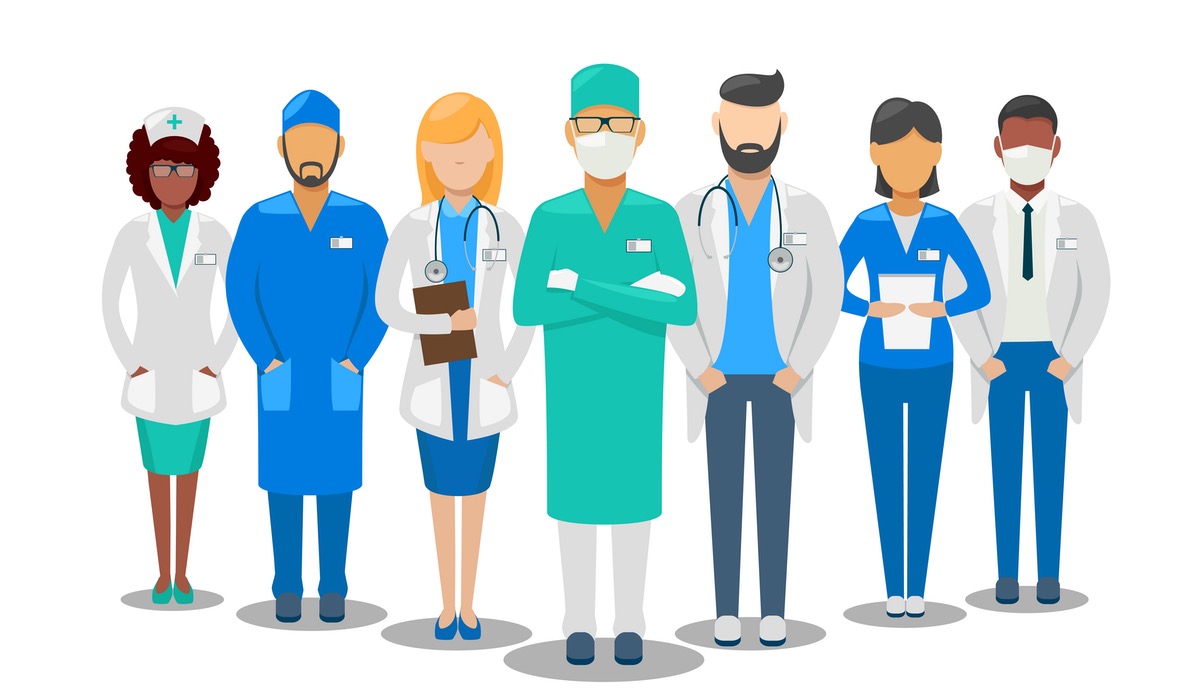The healthcare industry is constantly evolving and adapting to the changing needs and demands of patients, providers, and society. As a result, new healthcare jobs are emerging, and existing ones are transforming to meet the challenges and opportunities of the future. In this article, we will explore some of the current healthcare jobs trends and opportunities you should know if you are interested in pursuing a career in this dynamic and rewarding field.
One of the major trends in healthcare jobs is the shift from acute care to preventive and holistic care. This means that more healthcare professionals focus on helping patients stay healthy and avoid chronic diseases rather than treating them after they get sick. This also means more healthcare jobs are moving from hospitals and clinics to community-based settings, such as home health, telehealth, and wellness centers. Some of the healthcare jobs that are in high demand in this area are:
Table of Contents
1. Nurse Practitioners (NPs) and Physician Assistants (PAs)
These are advanced practice providers who can diagnose and treat common illnesses, prescribe medications, order tests, and perform procedures. They work independently or in collaboration with physicians and often have a specialty area, such as family medicine, pediatrics, geriatrics, or mental health. Nurse Practitioners (NPs) and Physician Assistants (PAs) can provide primary, urgent, or specialty care to patients in various settings, such as rural areas, schools, workplaces, or prisons. They can also specialize in various fields, such as family medicine, pediatrics, geriatrics, psychiatry, oncology, etc. According to the Bureau of Labor Statistics (BLS), the employment of Nurse Practitioners (NPs) and Physician Assistants (PAs) is projected to grow by 45% and 31%, respectively, from 2019 to 2029, much faster than the average for all occupations.
2. Registered Nurses (RNs)
These are the backbone of the healthcare system, providing direct patient care, education, advocacy, and coordination. They can work in various settings, such as hospitals, clinics, schools, nursing homes, etc. They can also pursue advanced degrees and certifications to become nurse educators, nurse managers, nurse anesthetists, nurse midwives, or clinical nurse specialists.
3. Medical Assistants (MAs)
These allied health professionals perform administrative and clinical tasks to support physicians and other healthcare providers. They can work in various settings, such as clinics, hospitals, laboratories, etc. They can also specialize in various fields, such as dermatology, cardiology, pediatrics, and more.
4. Health Coaches
These professionals help patients achieve their health goals by providing education, motivation, guidance, and support. They work with patients to create personalized action plans based on their health history, lifestyle, preferences, and needs. They also monitor their progress and provide feedback and encouragement along the way. Health coaches can work with individuals or groups and specialize in areas such as weight management, diabetes management, stress management, or smoking cessation. According to the International Coach Federation (ICF), the global market for health coaching is expected to reach $7.85 billion by 2022, up from $3.36 billion in 2017.
5. Community Health Workers (CHWs)
These professionals serve as a bridge between the healthcare system and the communities they serve. They provide culturally appropriate health education, outreach, advocacy, and referrals to patients who face barriers to accessing quality care. They also help patients navigate the complex healthcare system and coordinate care among providers and services. CHWs can work with specific populations, such as immigrants, refugees, minorities, low-income families, or seniors. They often deeply understand the culture, language, and needs of the communities they work with. According to the BLS, the employment of CHWs is projected to grow by 13% from 2019 to 2029, faster than the average for all occupations.
Another major trend in healthcare jobs is integrating technology and innovation into healthcare delivery and management. This means that more healthcare professionals are using digital tools and platforms to enhance their efficiency, effectiveness, quality, and safety of care. This also means that more healthcare jobs require technical skills and knowledge to operate and maintain these systems.
If you find article useful, don't miss out on the valuable insights and information available in our other related posts:
6. Health Informatics Specialists
These professionals collect, analyze, and manage health data using information technology (IT) systems. They design, develop, implement, evaluate, and improve IT solutions that support clinical decision-making, research, education, quality improvement, and administration. They also ensure health data security, privacy, and compliance with regulations and standards. Health informatics specialists can work in various settings, such as hospitals, clinics, pharmacies, insurance companies, or government agencies.
7. Healthcare Data Analysts
These are professionals who use statistical methods and software to process and interpret large amounts of health-related data. They can help identify patterns, trends, gaps, and opportunities for improvement in various aspects of healthcare delivery and management. They work with various sources of data, such as electronic health records, claims data, patient surveys, social media, etc., and use various tools and techniques, such as artificial intelligence, machine learning, natural language processing, etc., to generate actionable insights for healthcare organizations and stakeholders.
8. Telehealth Technicians
These professionals facilitate telehealth services between patients and providers using videoconferencing equipment and software. They set up, test, and troubleshoot the telehealth systems and provide technical support and assistance to both parties during the sessions. They also document and report any issues or incidents during telehealth services. Telehealth technicians can work in various settings, such as hospitals, clinics, home health agencies, or call centers. According to a report by Grand View Research, the global telehealth market size was valued at $55.6 billion in 2020 and is expected to grow at a compound annual growth rate (CAGR) of 22.4% from 2021 to 2028.
9. Medical Device Technicians
These professionals install, repair, and maintain medical devices and equipment used to diagnose, treat, monitor, or prevent diseases and conditions. They ensure that the devices and equipment function properly and safely and comply with regulations and standards.
They also train and educate the users and operators of the devices and equipment on how to use them correctly and effectively. Medical device technicians can work in various settings, such as hospitals, clinics, laboratories, or manufacturing plants.
10. Healthcare Innovation Consultants
These professionals help healthcare organizations identify, develop, and implement innovative solutions for improving healthcare delivery and outcomes. They can work in various settings, such as consulting firms, healthcare startups, academic institutions, etc. They can also specialize in various fields, such as digital health, patient experience, quality improvement, etc.
11. Geriatric Care Managers
These professionals help older adults and their families navigate the complex and often fragmented healthcare system. They assess the needs and preferences of older adults, coordinate their care across different providers and settings, advocate for their rights and interests, provide education and support, and facilitate communication and decision-making.
12. Behavioral Health Integration Specialists
These are professionals who integrate behavioral health services into primary care settings. They screen patients for behavioral health issues, such as depression, anxiety, substance abuse, etc., provide brief interventions or referrals as needed, collaborate with primary care providers and behavioral health specialists to coordinate care plans, monitor progress and outcomes, and promote patient engagement and self-management.
The Bottom Line
These are just some of the current healthcare job trends and opportunities you should know if you want to pursue a career in this field. Many more healthcare jobs are emerging and evolving as the industry continues to grow and innovate.
We hope you found this article helpful and informative. If you have any questions or comments, please leave them below. We would love to hear from you!





